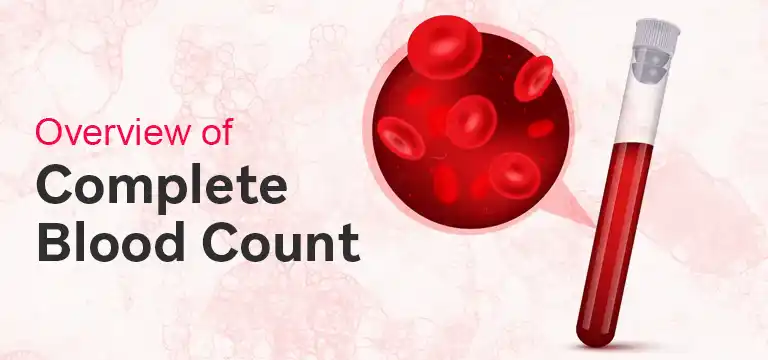A Complete Blood Count (CBC) test is a cornerstone of routine health screenings and diagnostic evaluations. This test provides critical insights into your overall health and helps detect a variety of conditions, from infections to anemia. Understanding the components of a CBC test and what the results mean can empower you to take proactive steps in managing your health.
What is a CBC Test?
A CBC test measures different components of your blood, including red blood cells, white blood cells, hemoglobin, hematocrit, and platelets. Each component plays a vital role in maintaining your health and can indicate various health conditions when levels are abnormal.
Components of a CBC Test
1. Red Blood Cells (RBCs)
- Function: Carry oxygen from the lungs to the rest of the body and return carbon dioxide to be exhaled.
- Normal Range: Men: 4.7-6.1 million cells/mcL; Women: 4.2-5.4 million cells/mcL.
- Abnormal Levels: Low RBC count may indicate anemia, while high levels could suggest dehydration or heart disease.
2. White Blood Cells (WBCs)
- Function: Fight infections and play a role in immune response.
- Normal Range: 4,000-11,000 cells/mcL.
- Abnormal Levels: High WBC count can indicate infection, inflammation, or leukemia. Low count may suggest bone marrow problems or autoimmune diseases.
3. Hemoglobin (Hgb)
- Function: A protein in RBCs that carries oxygen.
- Normal Range: Men: 13.8-17.2 g/dL; Women: 12.1-15.1 g/dL.
- Abnormal Levels: Low hemoglobin levels can indicate anemia, while high levels might suggest lung disease or polycythemia vera.
4. Hematocrit (Hct)
- Function: The proportion of RBCs in your blood.
- Normal Range: Men: 40.7-50.3%; Women: 36.1-44.3%.
- Abnormal Levels: Low hematocrit can indicate anemia or chronic illness. High levels may suggest dehydration or polycythemia.
5. Platelets
- Function: Help with blood clotting.
- Normal Range: 150,000-450,000 platelets/mcL.
- Abnormal Levels: Low platelet count (thrombocytopenia) can lead to bleeding disorders, while high count (thrombocytosis) can increase the risk of clotting disorders.
Why Your Doctor Orders a CBC Test
Your doctor may order a CBC test for several reasons:
- Routine Checkup: To assess your overall health.
- Symptom Diagnosis: To investigate symptoms such as fatigue, weakness, fever, bruising, or weight loss.
- Monitor Conditions: To monitor existing health conditions like anemia or leukemia.
- Treatment Effectiveness: To evaluate how well treatment for a condition is working.
Preparing for a CBC Test
Preparation for a CBC test is straightforward. Here’s what you need to know:
- Fasting: Generally, no fasting is required unless specified by your doctor.
- Medications: Inform your doctor about any medications or supplements you’re taking, as some can affect blood counts.
- Hydration: Staying hydrated can make the blood draw easier.
What to Expect During the Test
A CBC test is a quick and simple procedure. Here’s what happens:
- Blood Draw: A healthcare provider will clean the area, usually the inside of your elbow, and insert a needle to draw blood.
- Collection: Blood is collected into a vial or tube.
- Post-Procedure: The needle is removed, and the puncture site is covered with a bandage. You might feel a slight pinch or discomfort during the draw.
Understanding Your Results
Once the results are in, your doctor will review them with you. Here’s a general guide to interpreting your CBC results:
- Red Blood Cells (RBCs): Abnormal levels can indicate anemia, dehydration, or other conditions.
- White Blood Cells (WBCs): Elevated or decreased levels can signal infection, inflammation, or bone marrow issues.
- Hemoglobin (Hgb): Low levels may point to anemia, while high levels could indicate lung disease.
- Hematocrit (Hct): Variations can suggest anemia or polycythemia.
- Platelets: Abnormal counts can lead to bleeding or clotting disorders.
Follow-Up Steps
If your CBC results are abnormal, your doctor may recommend further testing or treatments based on the findings. It’s important to discuss any concerns and follow your doctor’s advice for managing your health.
A Complete Blood Count (CBC) test is a vital tool in assessing your overall health and diagnosing a range of conditions. By understanding the components and implications of your CBC results, you can work with your healthcare provider to ensure you receive the best possible care. Regular health check-ups and staying informed about your health are key to maintaining well-being.
Stay proactive about your health—schedule regular check-ups and talk to your doctor about any concerns or symptoms you may have. Understanding your CBC test results is a step toward taking control of your health.
References
Mayo Clinic – Complete Blood Count (CBC)
American Society of Hematology – Complete Blood Count (CBC)
MedlinePlus – Complete Blood Count (CBC)
Cleveland Clinic – Complete Blood Count (CBC)
Johns Hopkins Medicine – Complete Blood Count (CBC)

